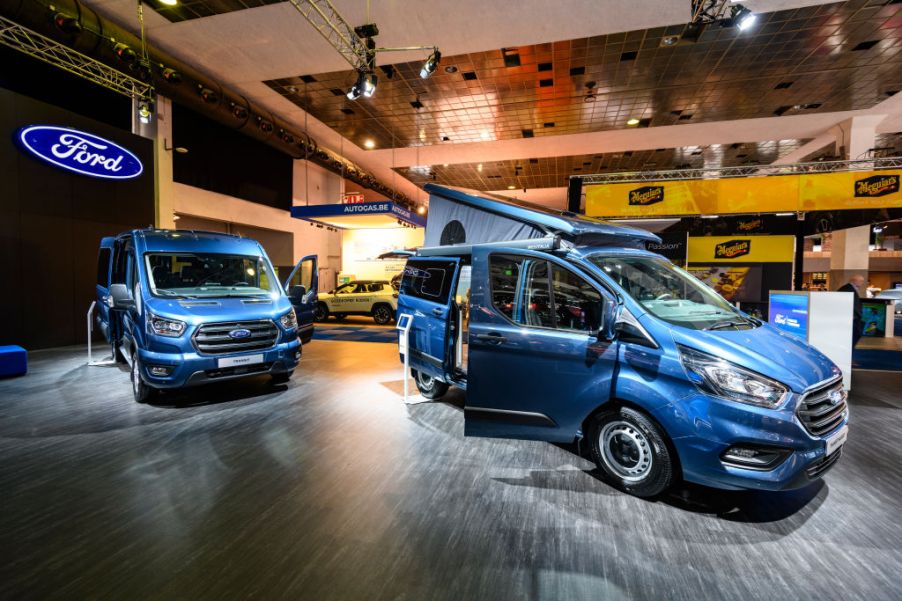
Even Ford’s Transit Vans Are Going Electric Now
When you think of electric car brands, you may first think of Tesla or even Toyota. And while you may associate Ford with big trucks and big sales, the automaker isn’t known for its innovation on the electric front. But in just the last few years, Ford has changed all that with a new reinvestment into EVs. And nothing could prove that Ford is ready to take on the EV market more than a brand-new, all-electric Ford Transit Van.
Ford’s continuing its plans for an all-electric future with its new electric van
Although automaking giant Ford has zero problems selling vehicles, other brands have certainly done a better job of being electric vehicle innovators. According to Auto News, Ford had “yet to deliver a serious battery-electric vehicle” by the 2019 model year, when other brands seemed to be churning them out without a problem. But by mid-2019, Ford announced it would address this issue by investing $11 billion on EV technology by 2022. In addition to the monetary investment, Ford also promised to use this tech to “develop 40 new all-electric and hybrid models,” according to CNBC.
Shortly after this announcement, Ford debuted its plans for an electric, Mustang-inspired Mach-E crossover and an electric F-150 pickup truck. Less than a year after releasing its plans for EV investment, Ford just announced its electric lineup would be growing again in the form of the Ford Transit van. The 2022 all-electric Ford Transit Van will be available in 2021 and only solidifies Ford’s recent, explosive entrance into the EV game.
The electric 2022 Ford Transit Van: what we know so far
According to the press release from Ford Motor Co., the all-electric 2022 Ford Transit will be sold in both the U.S. and Canada. The newest, zero-emissions Transit Van will be made in the U.S., “helping businesses achieve sustainability goals and lower cost of ownership while helping cities improve air quality and reduce noise levels.” Always finding new ways to optimize the van’s performance for business owners, the 2020 Transit van will be designed with more technology, integration, and personalization than ever before.
Ford promises that the all-electric Transit Van will utilize features like cloud-based services and the ability to connect with up to 10 devices at a time, to help “fleet customers” do their jobs better and easier. New owners will be able to select an all-electric Transit Van from a variety of available configurations. According to MotorTrend, the electric Transit Van will be made in cargo van, cutaway, and chassis cab body styles. Owners can also choose between three body lengths and three roof heights, allowing for maximum efficiency without having to compromise cargo capacity.
What will the future of EVs look like?
While Ford finally entered the EV game with an impressive bang, other brands have been moving towards an electric lineup for years. Toyota, for example, currently takes up “more than 80 percent of the global hybrid vehicle market,” according to Business Insider. The world is more environmentally conscious than ever before, driving the car market to match its sentiments. Today’s consumers are concerned with their carbon footprint, but they also need the space and function of a proper vehicle. In order to keep up, most brands are following suit and giving consumers what they want.
According to RealClear Energy, “the transition to low- and no-emission vehicles” has been a “quiet revolution,” but everyone seems to know that the future of vehicles is headed towards all-electric. There are more than 40 hybrids and all-electric vehicles currently on the market in the U.S. An estimated 130 fully-electric vehicles will be available by 2025. And with more and more EV options on the market, the general cost of electric technology will continue to decrease as demand increases.


